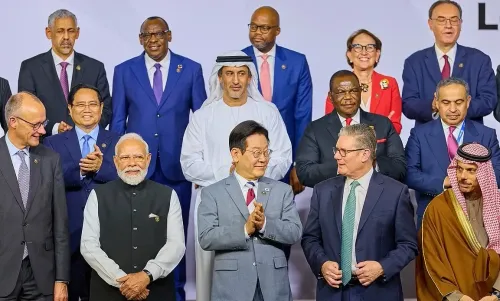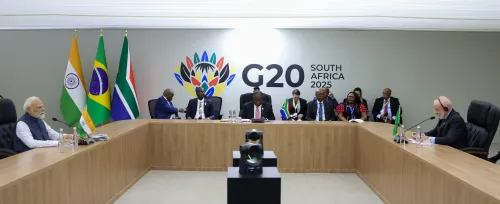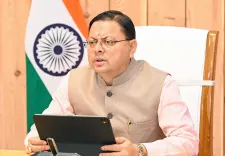Could UK's Starmer Adopt India's Aadhaar for a Digital ID System?

Synopsis
Key Takeaways
- Starmer’s initiative could streamline public service access.
- Learning from India’s Aadhaar may foster innovation.
- New partnerships in technology and health are emerging.
- Trade discussions aim to strengthen economic ties.
- Privacy concerns remain crucial in implementation.
Mumbai, Oct 9 (NationPress) UK Prime Minister Keir Starmer is looking to India's Aadhaar card initiative as a model while his government plans to implement a comprehensive digital identity system across the UK. Upon arriving in Mumbai on Tuesday, Starmer's initial agenda included a meeting with Nandan Nilekani, co-founder of Infosys and former Chairman of the Unique Identification Authority of India (UIDAI).
As reported by The Guardian, a representative from Downing Street later clarified that the meeting's purpose was not for any commercial partnership with Infosys but to learn how India established one of the world's largest digital identity frameworks.
Starmer has consistently pointed to Aadhaar as a significant success story.
"We are visiting a country, India, where they have successfully implemented an ID system. One of my meetings will focus on ID in that context," he told reporters prior to his departure for Mumbai.
The Prime Minister believes that a centralized ID will streamline processes for citizens, including applications for schools, childcare, and public services.
Last month, Starmer announced that digital ID cards would become compulsory for British citizens and permanent residents seeking employment.
In contrast to Aadhaar, however, the UK system is not expected to incorporate biometric data at this point, according to a spokesperson.
Britain has not enforced mandatory identity cards since World War II. The initiative for biometric ID cards by former Prime Minister Tony Blair was scrapped following public opposition.
Additionally, Prime Minister Starmer and Indian Prime Minister Narendra Modi discussed enhancing trade and economic cooperation, aimed at creating more jobs and fostering investment between the two nations.
A joint statement after the meeting indicated that both countries agreed to establish a collaborative center for artificial intelligence (AI), along with an India-UK connectivity and innovation hub. They also resolved to form a critical minerals industry guild to bolster supply chains and promote sustainable technologies.
New partnerships in renewable energy and health, an offshore wind task force, and a joint health research initiative were also announced, alongside a shared investment in a climate technology startup fund.
These agreements are expected to accelerate the growth of bilateral trade, facilitate the establishment of UK university campuses in India, and enhance collaboration in leveraging advanced technologies to drive equitable economic development and strengthen national security.









